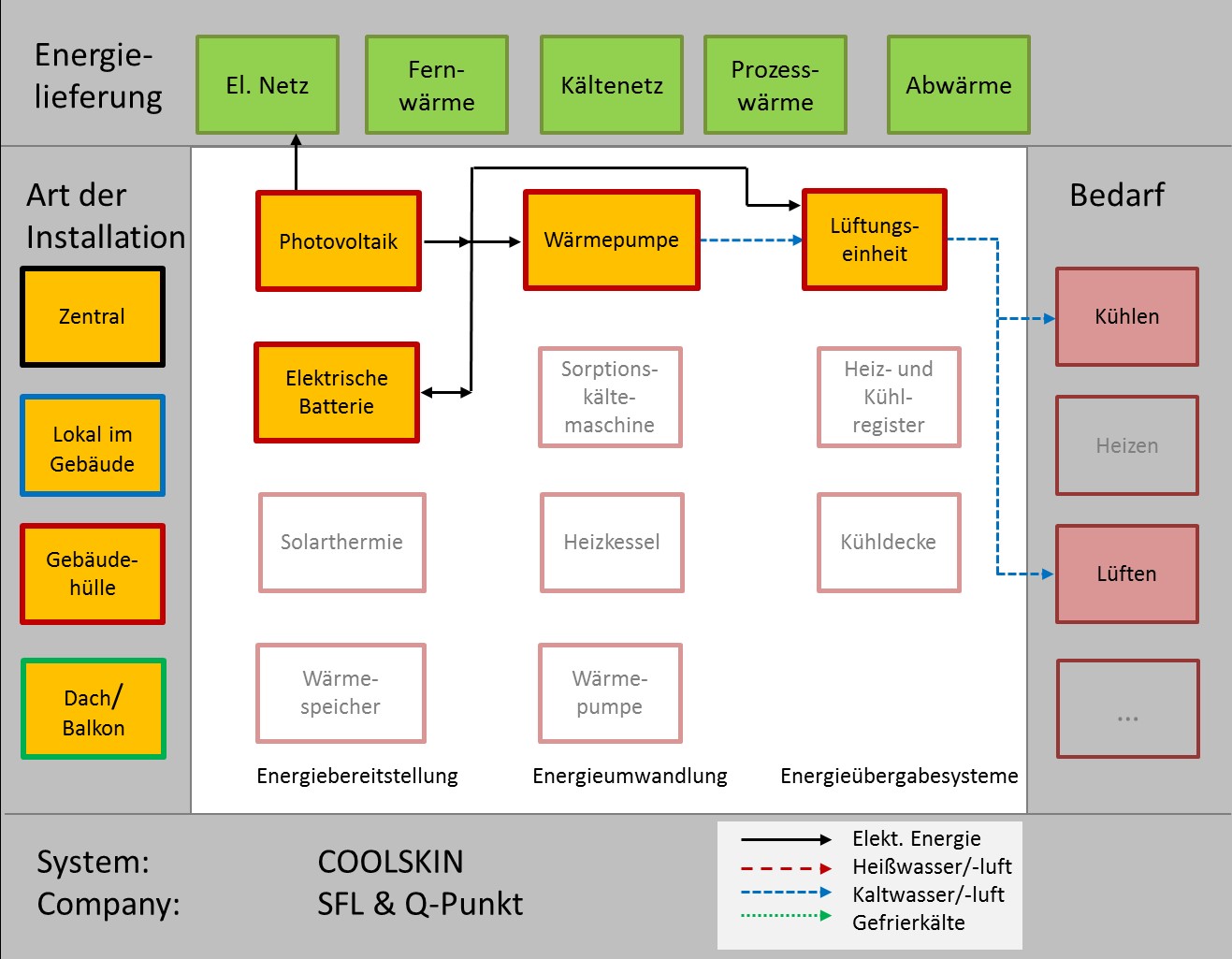IEA SHC Task 53: New Generation Solar Cooling & Heating Systems
Short Description
Scope
According to the study 'The Future of Cooling' [OECD/IEA 2018], the energy demand for air-conditioning (AC) is growing faster than any other final energy demand in the building sector. Between 1990 and 2016, global energy consumption tripled to over 2000 terawatt hours. If no appropriate measures are taken, the energy requirement for air-conditioning is expected to triple further by 2050. It is assumed that by 2050 the three countries India, Indonesia and China will account for about half of the total worldwide increase in air-conditioning systems (ACs). It is estimated that over 2 billion ACs will be installed in China and India by 2050.
Solar Air-Conditioning (SAC) is an effective technical solution for improving people's comfort and reducing resource consumption and CO2 emissions by applying renewable energy resources.
Contents and objectives
SHC Task 53 is designed as a valuable continuation of the previous working groups of SHC Task 38 (Solar Air-Conditioning and Refrigeration) and SHC Task 48 (Quality Assurance & Support Measures for Solar Cooling Systems). For the first time, the international working group researched both solar-thermal and solar-electrically driven cooling and air-conditioning processes in the capacity range less than 100 kW thermal.
The result of the SHC Tasks 53 cooperation is a series of documents, guidelines and tools that support market players in implementing high-quality, durable and reliable solar cooling and heating (SHC) systems.
Method
In cooperation with a total of 22 organisations (research institutes, universities and companies) from ten countries, the SHC Task 53 dealt with numerous topics and published reports. The Austrian participants have coordinated and managed tasks/ activities and thus they were able to help shape the content. Based on the findings and experiences from national and international projects on 'Solar Cooling and Heating' and 'Photovoltaics', the Austrian partners contributed their respective expertise. On the one hand relevant information and results were prepared and provided and on the other hand methods for standardised long-term monitoring, the evaluation approach and analysis of the energetic, ecological and economic SHC system performance were developed for measurement and simulation data.
The Austrian participants of the IEA SHC Task 53 worked on the active dissemination of the main findings in Austria. Among other things, a national workshop was held in Graz in October 2018.
Results and conclusions
Numerous deliverables and documents are published on the official website of SHC Task53. Significant Austrian contributions can be found in the following results reports:
- D_A.1 Definition of the existing cooling reference systems
- D_A.2 State of the art of new generation commercially available products
- D_A.4 Report on a new and universal classification method "new generation solar cooling square view" for generic systems
- D_B.2 Netzfreundliche SHC-Systeme
- D_C.2 Adapted Monitoring Procedure of New Generation Solar Heating & Cooling Systems
- D_C.3 T53E4 Tool – To Assess a System's Technical and Economic Potential
- D_C.4 Monitoring data analysis on technical issues & on performances
- Position Paper - Solar Heating and Cooling & Solar Air-Conditioning [PosPaper 2018]
By applying the developed support measures and tools, it may be possible to significantly accelerate the rollout of solar cooling and heating technology - with significantly reduced fossil primary energy consumption over the life cycle of the SHC systems.
Due to the financial support of the BMVIT, Austria was able to further expand its expertise in the field of research and development of the system technology 'Solar Cooling and Heating' and the researchers of the national institutions are respected and welcome partners on an international and European level.
Publications
Project Partners
Participants
Australia, Austria, China, Germany, France, Italy, Sweden, Switzerland and Spain
Contact Address
AIT Austrian Institute of Technology GmbH
Tim Selke
Donau-City-Str. 1, 1220-Wien
E-Mail: tim.selke@ait.ac.at
AEE – Institut für Nachhaltige Technologien
Rebekka Köll
Feldgasse 19, 8200 Gleisdorf
E-Mail: r.koell@aee.at
Universität Innsbruck, Institut für Konstruktion und Materialwissenschaften, Arbeitsbereich Energieeffizientes Bauen (UIBK)
Alexander Thür
Technikerstraße 13, 6020 Innsbruck
E-Mail: Alexander.Thuer@uibk.ac.at

